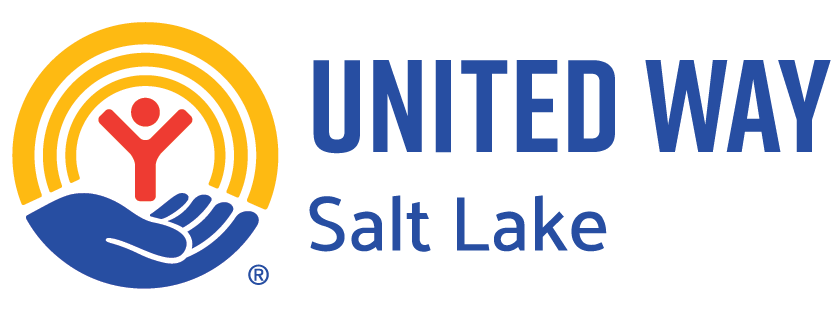
Many of us take routine dental care for granted—it’s just something you have to take care of every six months. And while it can sometimes seem like a minor annoyance, the overall benefits of maintaining one’s oral health far outweigh the dentist’s semi-annual lecture about how you really should floss more.
But for families with limited access to health care, routine dental checkups often become a distant priority—if they even happen at all. After all, when a family is barely making ends meet from day to day, they’re significantly less likely to have money put away for medical expenses or be able to afford the routine preventative care that’s so important for overall health.
Eryn Gorang, United Way of Salt Lake’s Senior Community School Director at Woodrow Wilson Elementary, has witnessed firsthand the profound impact dental health can have on students at her school. She recalls a child, Matthew, whose academic performance had been inexplicably declining.
“His teachers were complaining he couldn’t concentrate,” she says. “His gums were gray and he had a tooth that was falling out in little chunks.”
Matthew was eventually examined, and it turned out he had an impacted tooth that hadn’t been treated at all.
“These are the types of things patients can die from if they go on for too long,” Gorang said. “I know the story of his family. They don’t have medical or dental insurance. His parents work in fast food so that’s all he eats.”
After a previous dental partnership disbanded, Gorang knew it had to be a priority to help other students like Matthew. Many children at Woodrow Wilson come from families with no healthcare coverage whatsoever.
“Just being in so much pain and allowing their teeth to get to that level—I realized that can’t happen to our students, putting health and life at risk.”
As Gorang fretted over how Woodrow Wilson could continue to help students in desperate need of dental care, she was contacted by Staci Stout, who had founded her own organization, Smart Smiles, after spending time volunteering for the school’s previous dental partner.
“We saw the tremendous need in the area,” says Stout of her time volunteering at Woodrow. “From there, I wanted to do more.”
 A passionate proponent of making oral healthcare accessible for all, Stout worked as a dental assistant and hygienist for 26 years before spending the last nine teaching at Salt Lake Community College. During her tenure as president of the Utah Dental Hygienists’ Association, her efforts were instrumental in passing legislation that would allow hygienists to work in public settings—including schools.
A passionate proponent of making oral healthcare accessible for all, Stout worked as a dental assistant and hygienist for 26 years before spending the last nine teaching at Salt Lake Community College. During her tenure as president of the Utah Dental Hygienists’ Association, her efforts were instrumental in passing legislation that would allow hygienists to work in public settings—including schools.
“Oral health is often overlooked,” she said. “It’s the gateway to the rest of your body—if your mouth isn’t healthy, the rest of your body can’t be either.”
Stout’s foundation, Smart Smiles, provides dental care to children at Title 1 schools in Granite School District, Jordan School District, and Weber School District, visiting each school once per week to provide cleanings, exams, and consultations to kids who may not otherwise have access to these services.
“There are a lot of barriers for families to get consistent care in dentistry,” Gorang explained. “Being able to pull a kid out of class for 30 or 40 minutes is better than the cost it takes for a parent to leave their work, lose their hourly wages, and get their kid to the dentist.”
To ensure students are seen by a dentist as part of their exam, Smart Smiles also employs an innovative new method—the state’s first teledentistry service that connects patients to Dr. Tanner Clarke via video conference.
If the student’s needs are greater than a routine cleaning can provide, they are referred to Dr. Clarke for an in-person visit at his office adjacent to Woodrow Wilson Elementary.
“They can meet him over video and see he’s a nice guy, and if they have a need to see him in person, there’s not as much anxiety over that visit,” Stout said.
In the past year, Smart Smiles served students at 35 different Title 1 schools, including 8 in Granite School District.
“Now it’s just, ‘how do we keep getting bigger and better?’ so that more kids can be seen,” says Gorang.
By all accounts, the program has been a success and an illustration of what’s possible when local organizations work together to help ease the burden on disadvantaged families.
“Everything came together,” Stout said. “Eryn brought the right people to the table, Dr. Clarke took a chance on this program, and we have great dental hygienists that come in and volunteer their time to help these students with their oral health.”
Gorang sums up the importance of programs like Smart Smiles succinctly: “If kids aren’t having some basic needs met, they won’t be able to learn well,” she says. “This partnership fits a need that is felt among so many families.”
Learn more about how kids are connected to the resources they need at our Community Schools at uw.org/community-schools.

By Kelly Schmidt, Content Manager at United Way of Salt Lake

